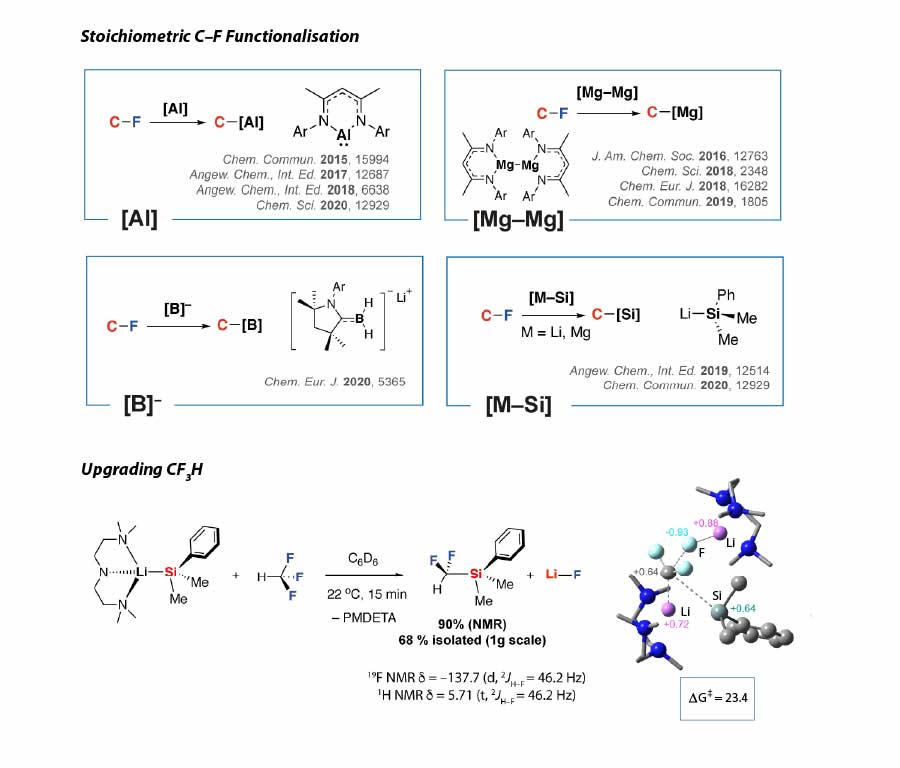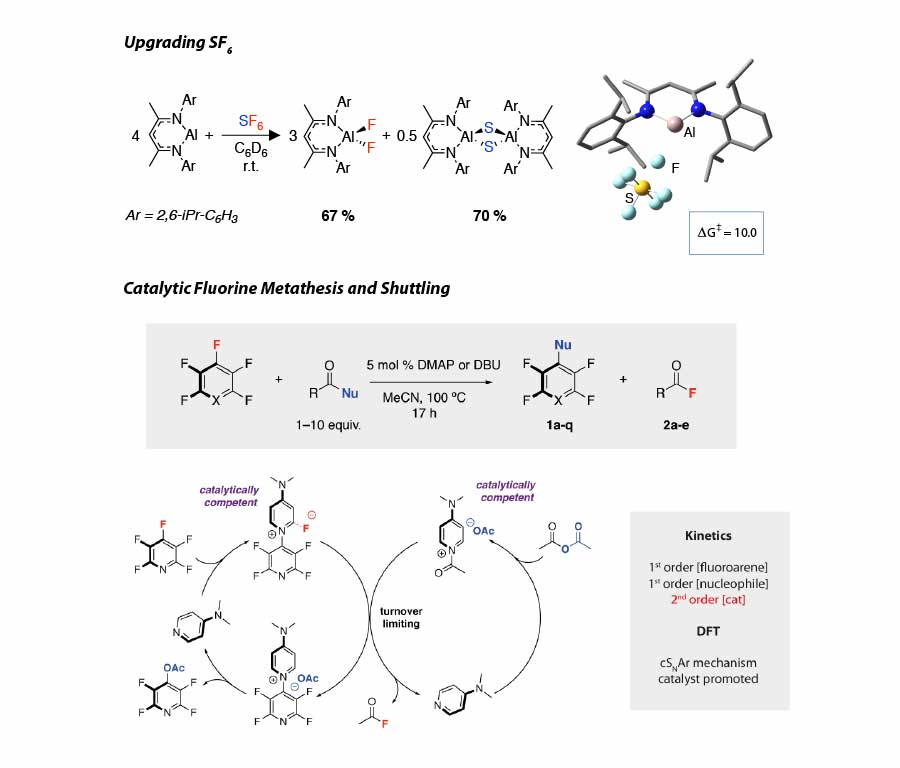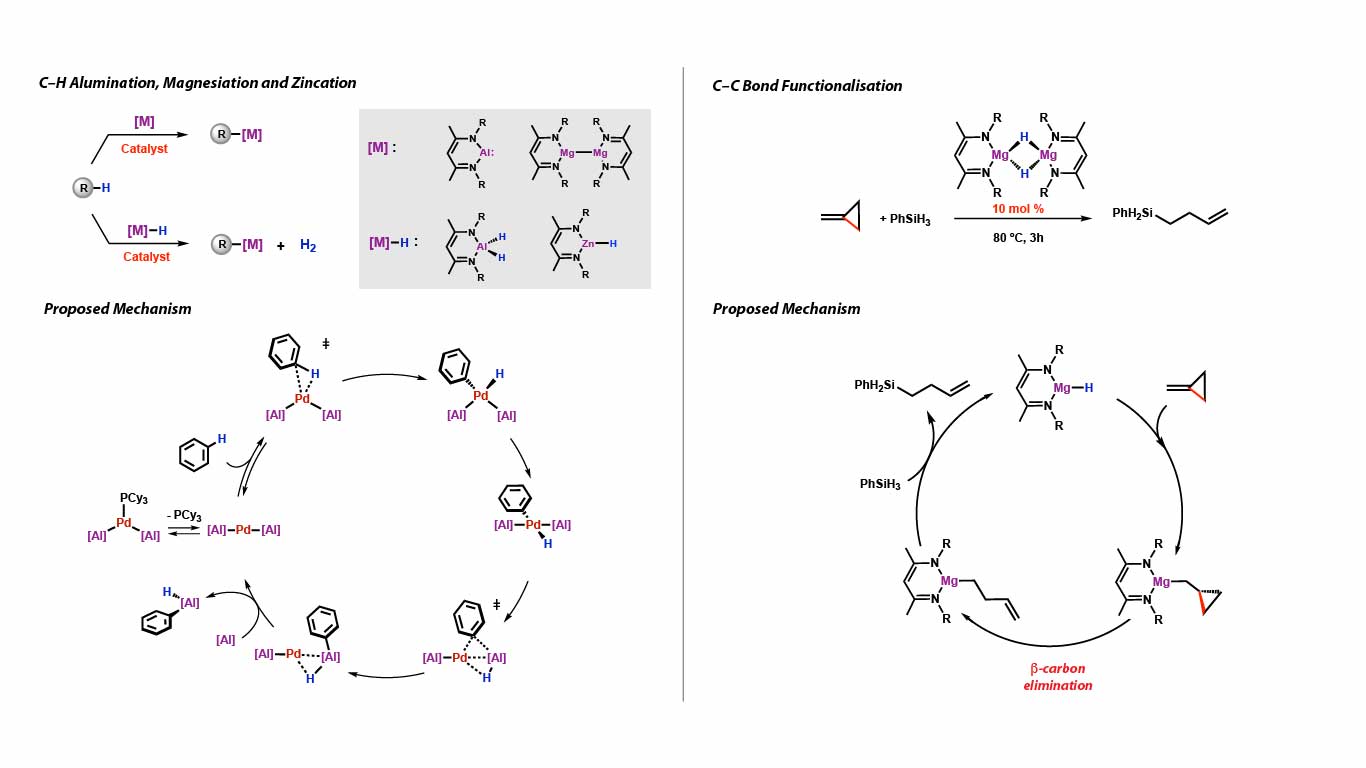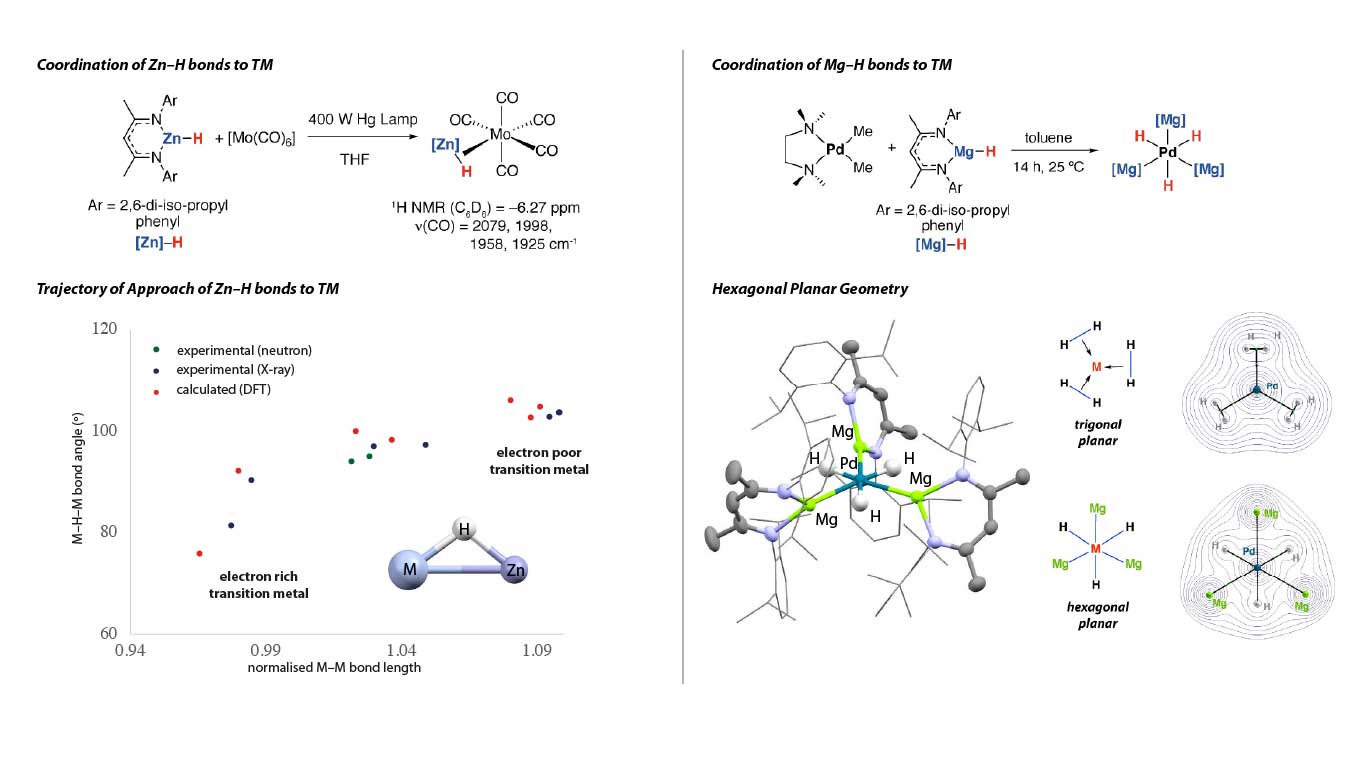Crimmin Group |
A Molecular Science Research Group
Fluorine Chemistry
Fluorinated molecules while contributing to improving our quality of life, can be environmentally persistent and damaging. For example, fluorinated gases (F-gases) such as hydrofluorocarbons (HFCs) or SF6 are potent greenhouse gases that contribute to global warming. There is also increasing concern over poly(fluoroalkylated) substances (PFAS) which are known to be damaging to health.

We are developing new types of reactions for the chemical recycling of fluorinated molecules. This includes methods to upgrade HFCs and SF6 that allow the re-use of the atoms from these F-gases. We are also studying new catalytic approaches to move fluorine atoms (and fluorine containing groups) between two molecules. Our long-term aim is to develop a detailed understanding of reactions that break and make carbon–fluorine bonds.

Catalysis
Reactions that break and functionalise strong C–H and C–O bonds of organic molecules hold promise to upgrade raw materials such as those formed from the depolymerisation of biomass. These methods can also potentially be used to synthetically diversify complex molecules such as pharmaceuticals and agrochemicals. We are developing new catalytic approaches for the metalation of C–H and C–O bonds with main group elements (Mg, Zn, Al). These approaches are complementary to established borylation methods and show unique selectivity and scope.
Element scarcity is a problem that is likely to continue to provide challenges as our energy and materials demands increase. Several transition metal elements, vital for our chemical manufacturing industry, are now classified as high risk due to limited supply. We are also investigating catalysts based on main group metals (Mg, Zn, Al), for example in the functionalisation of strained C–C bonds.

Organometallics
As an underpinning aspect of our other projects, we study the fundamental reactivity of organometallic molecules. This includes developing new reversible redox reactivity of aluminium compounds, investigating new types of heterometallic complexes that contain metal---metal interactions between transition metals and main group metals, and developing new methods to make carbon chains from CO, CO2 and H2.

Editing
Molecular editing is an emerging field that involves the selective addition, deletion, or replacement of atoms or atom groups within the scaffold of organic molecules. We are pioneering methods to install main group metal atoms into aromatic (and non-aromatic) ring systems such as benzene, furan, or dihydropyran. Our ultimate goal is to establish synthetic methods to transmutate these ring systems by turning one type of ring into another through editing.